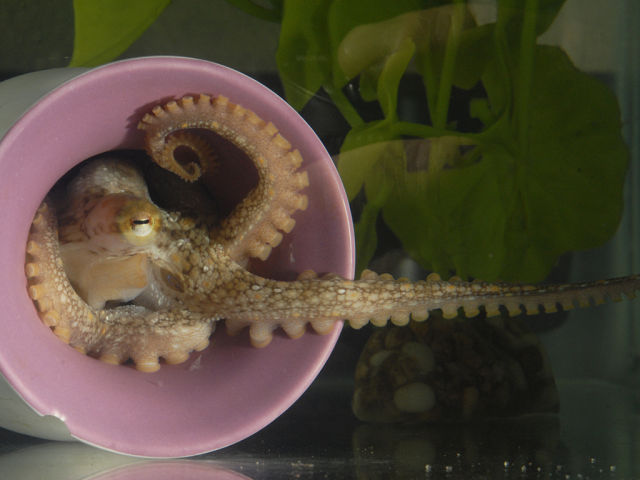-
Tips for becoming a good boxer - November 6, 2020
-
7 expert tips for making your hens night a memorable one - November 6, 2020
-
5 reasons to host your Christmas party on a cruise boat - November 6, 2020
-
What to do when you’re charged with a crime - November 6, 2020
-
Should you get one or multiple dogs? Here’s all you need to know - November 3, 2020
-
A Guide: How to Build Your Very Own Magic Mirror - February 14, 2019
-
Our Top Inspirational Baseball Stars - November 24, 2018
-
Five Tech Tools That Will Help You Turn Your Blog into a Business - November 24, 2018
-
How to Indulge on Vacation without Expanding Your Waist - November 9, 2018
-
5 Strategies for Businesses to Appeal to Today’s Increasingly Mobile-Crazed Customers - November 9, 2018
Scientists sequence octopus genome: A better understanding of cephalopods?
“What is analogous amongst all cephalopods might be necessary to being a cephalopod”.
Advertisement
“They have eight prehensile, sucker-lined arms that they can use to grasp, manipulate and even, strangely enough, taste objects, as well as complex, camera-like eyes, and large, elaborate brains that allow them to be active predators with complex behaviours”, said Caroline Albertin, co-author of the study from the University of Chicago.
Octopuses, along with squids, cuttlefish, and nautiluses, are cephalopods-a class of predatory mollusks with an evolutionary history spanning more than 500 million years (long before plants moved onto land).
They inhabit every ocean at nearly all depths and possess a range of features that call to mind sci-fi aliens.
Scientists have unlocked the genetic secrets of one of Earth’s underwater wonders – the octopus – whose eight sucker-studded arms bestow an otherworldly appearance and large brain place it among the smartest invertebrates.
The researchers were successfully able to sequence the genome of Octopus bimaculoides (California’s two-spot octpus), which is can typically be found off Southern California’s coast. However, Ragsdale and his colleagues found no evidence of duplications. The number of genes is substantially more than in humans of which there are between 20,000 and 25,000.
The most notable expansion was in the protocadherins, a family of genes that regulate neuronal development and short-range interactions between neurons. But in fact the octopus has a genome that seems a more jumbled version of other, less freaky organisms. These transcription factors play an important role in development, and are also thought to contribute to the camouflage and deception that are commonly seen in an octopus.
Yet besides these two dramatic expansions, octopus gene families are similar to other invertebrates.
“The sequencing was an opportunity to look at the genome and see what we can learn about the unique brain and morphology of the octopus”, said Daniel Rokhsar, a visiting professor at the Okinawa Institute of Science and Technology, which led the study.
While most octopuses have sex at a distance, probably because the females of these solitary species are apt to start eating their male partners if they come too close, the Pacific striped octopus engages in full-frontal sex.
Besides recognizable genes, vast swathes of the genome consist of regulatory networks that control how genes are expressed in cells.
For the primary time, researchers have decoded the complete octopus genome, revealing vital variations between the genetic coding of cephalopods and different associated invertebrates. The genome contains systems that can allow tissues to rapidly modify proteins to change their function. “It serves as an example of how to apply modern molecular, cellular and genomic techniques to advance our understanding of the nervous system in general, and will enable others to adapt that knowledge to other aspects of brain-related research”. The team noted several specific gene families of interest.
There are other hints of adaptations, like relatives of the receptor for the nerve signaling molecule acetylcholine that seem to have evolved to sense touch within the suckers.
One highly copied group of genes contain instructions for making protocadherin proteins.
Six octopus-specific reflectins, genes involved in light manipulation and camouflage, were identified. Even if the octopus evolved in a completely different ecosystem, evolution can have only so many solutions to a given problem. The findings back up the idea that the octopus and squid lineages broke away from each other about 270 million years ago.
The California two spot octopus is the first cephalopod to have its entire genome sequenced.
Advertisement
“The octopus genome makes studies of cephalopod traits much more tractable, and now represents an important point on the tree of life for comparative evolutionary studies”, Ragsdale said.




























